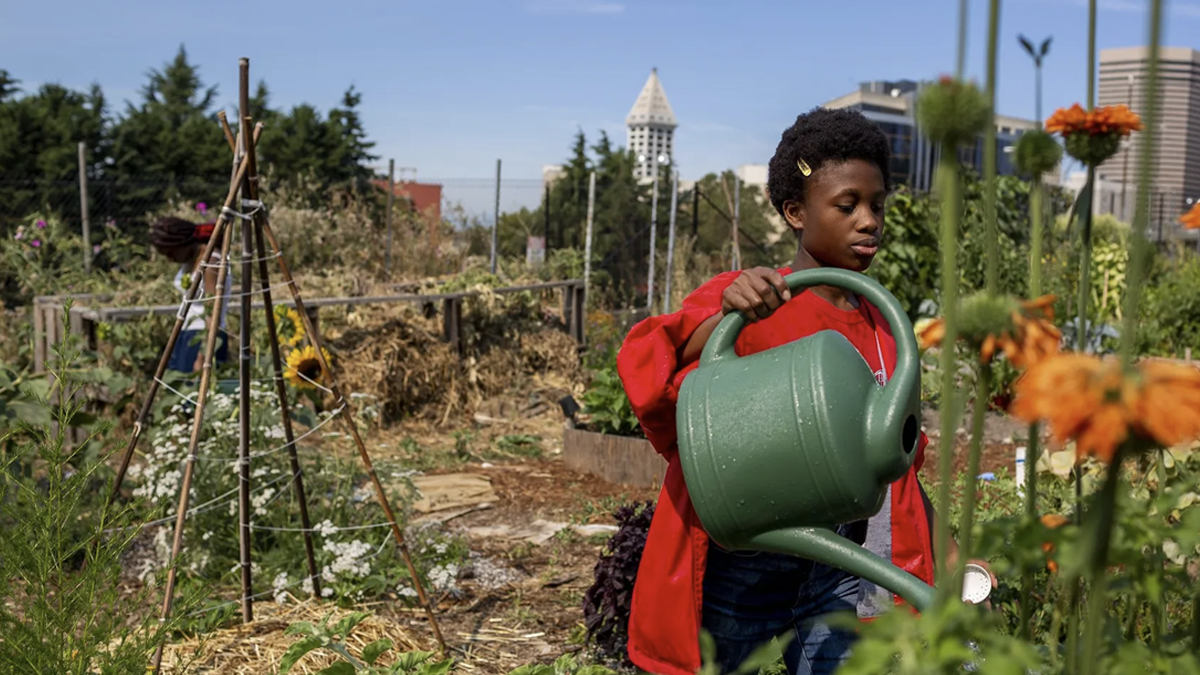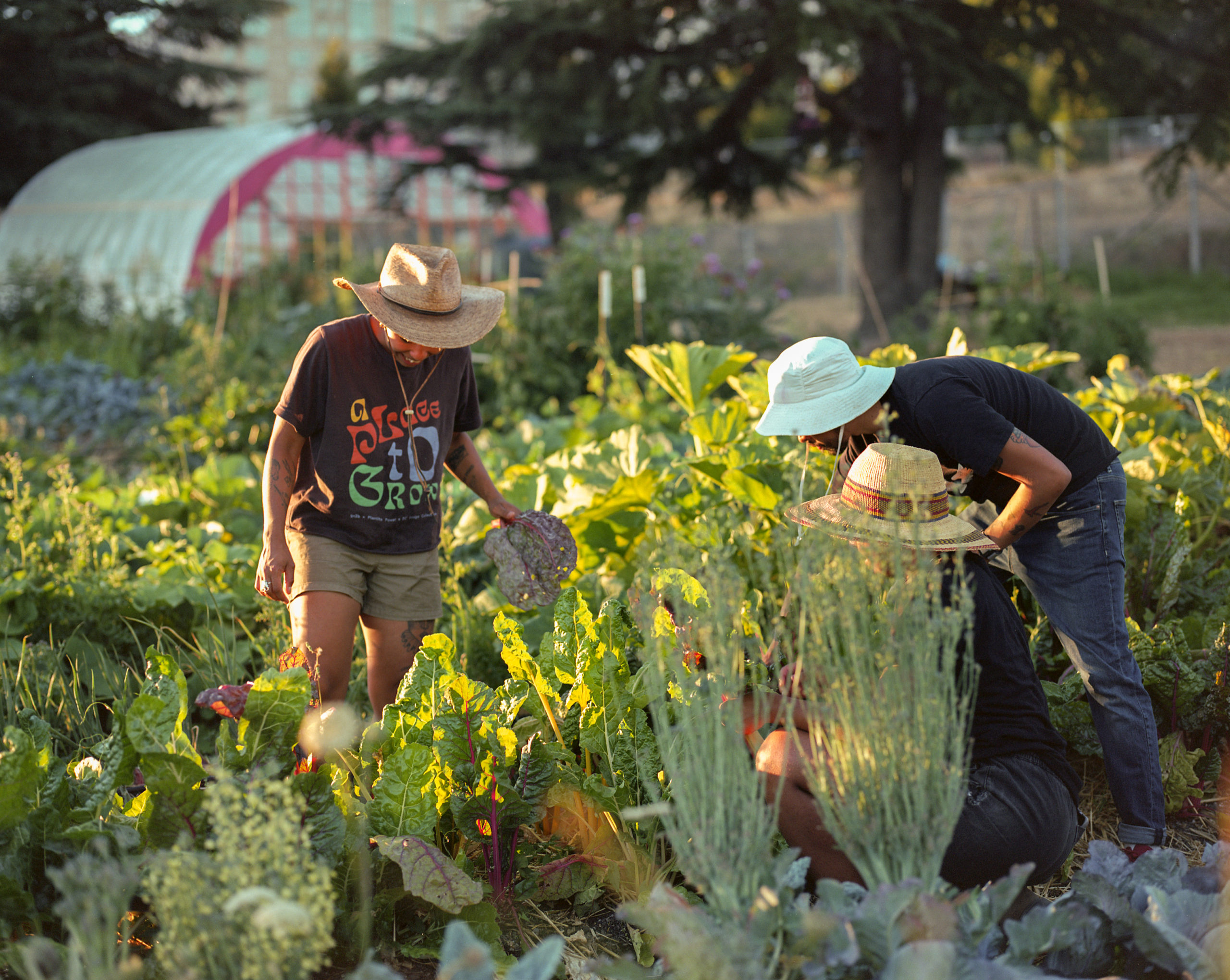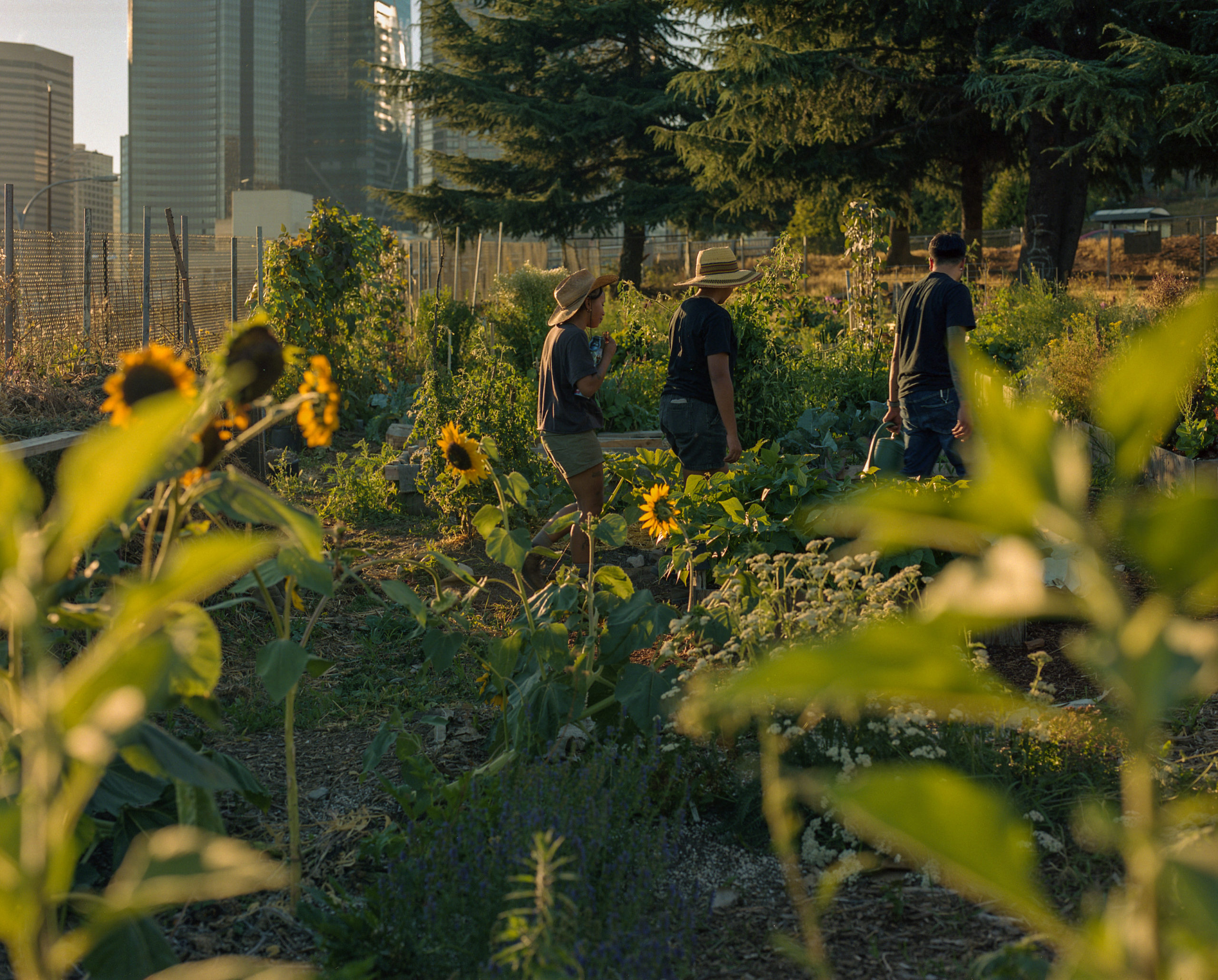Black Farmers Collective turns to the land to build sustainable, equitable futures for communities of color

The Black Farmers Collective is a group of urban foodstuff method activists operating to increase the health and fitness of Black communities by means of meals justice and sovereignty. Their mission is to make a Black-led community of meals technique actors to get and steward land, aid foodstuff education and learning, and produce area for Black liberation in therapeutic and pleasure. The Collective’s work is rooted in cooperation and interconnectedness with the atmosphere and the group. We lately linked with director Ray Williams to get to know a bit extra about the Collective.
Tell us about Black Farmers Collective and the work that you do?
Ray: In reaction to wellbeing disparities in the Black local community, I centered my group function on urban food items developing as a single of the finest matters people can do for their well being. We had been fashioned five yrs back to implement for the Sure Farm website. We have been functioning it for a few several years with a mission to develop foods and community on an inclusive website, fostering Black leadership on the land.
Due to the fact of its visibility from I-5 corridor, a large amount of folks have almost certainly noticed Certainly Farm, but may well not know a great deal about it. Can you notify me a little bit about the farm and how it will work to interact neighborhood?

Ray: Seattle Housing Authority (SHA) has been redeveloping Yesler Terrace and seemed to improve the freeway proper-of-way to the west of their residence. Black Farmers Collective (BFC) answered the Request for Proposal and SHA contracted with WA Point out Office of Transportation to “landscape” the row. We have been developing the farm web page through BFC labor, community volunteers, and partnerships with community companies. The aims are to improve contemporary, nutritious food items create an economic model where the farmer gets a dwelling wage and the food goes to people today who want it grow some possible farmers by means of participating local community and youth in mastering the apply and establish a welcoming neighborhood area. We have interaction local community by bringing people in to stop by the space and expertise it as they like stroll through, sit and replicate, be part of in the work. We supply exclusive functions to make a assorted community, educate all, and generate protected spaces for Black healing.
Hannah: We are now at this position where we have the potential to start off functioning on some of the suggestions we have experienced for the earlier two many years and have constructed wonderful associations with companies and folks that assist us definitely engage the neighborhood. Suitable now, we are escalating so much extra food at Certainly Farm and Tiny Axe, our four-acre farm in Woodenville, we’re hoping to get a shipping van to help us convey food to our partner organizations or to Farmer’s Marketplaces and work towards acquiring an economic model beyond just grant funding that can enable with our aims. We want to give communities of colour the opportunity to learn about farming, subsidize food stuff for those people who have customarily not experienced access to new generate, and tackle challenges of local climate resilience and restoration centered around foodstuff.
In what techniques have inequities in our foods units impacted the Black neighborhood in Seattle?
Ray: Economic oppression has designed an revenue and wealth hole that has pushed numerous Black families to obtain the inexpensive, processed, harmful foodstuff our food stuff procedure has designed to make maximum revenue for house owners. This prosperity hole boundaries spouse and children startup funds that generally help younger business people. Previous discrimination has restricted land possession and, in accomplishing so, limited chances to inherit farmland. Because our foods process depends on undervalued and underpaid labor, predominantly by folks of color, and was developed on unpaid compelled labor, it has turned Black youth away from the opportunity or need to have interaction in the technique.
How will the grant you received as component of the Food stuff Equity Fund assist assistance the mission and eyesight of Black Farmers Collective?
Hannah: This grant is very huge for us due to the fact, though we have acquired grants in the previous, a ton of the get the job done that we have accomplished has been in collaboration with other corporations that had a lot more funding. Most of the grant revenue we have obtained has long gone to having to pay staff members and creating infrastructure. Now we’re capable to pivot from infrastructure setup to acquiring neighborhood plans, gatherings, and workshops. My target is to do a regular monthly workshop at Indeed Farm that will carry in diverse educators of coloration to train about farming, food stuff justice, and the setting. The first workshop we held was a seedling class wherever we established seed trays and this month, we’re getting a mushroom bucket workshop where participants can carry home kits to increase culinary mushrooms at dwelling. We’re energized that these workshops will be a way to give out cost-free sources to the group and carry men and women into a actually special finding out area.

The funding will also be used to host a sequence of cookouts above the summer season that will bring a Black chef to appear cook a food at the farm with the develop we’re developing at the time. I’m actually enthusiastic about this! I see it as an prospect to showcase neighborhood chefs and their creativity, and to familiarize folks with diverse fruits and veggies, and how to use them. Not everyone has all the applications to know how to cook dinner a bunch of delightful foods that are not only healthier for your overall body but are nourishing for your soul. We want to incorporate recipe cards and probably develop baggage for attendees to choose home. These events will also engage and guidance the broader group by bringing in DJs and Black vendors to appear to market their merchandise and share their competencies as properly.
Why is the perform you are executing at Black Farmers Collective and Yes Farm so critical for shaping the well being of the upcoming and performing to support heal wounds of the previous?
Ray: What we try to eat is a important issue in our upcoming well being. Creating a assorted, resilient neighborhood food items program is element of our community’s mitigation of climate adjust.
By reframing the notion that farming and doing work the land is “slave work” to acknowledge it as an act of developing and feeding the nation by uncovering great contributions of African American exploration to farming strategies and fostering Black land possession will aid recover some of the wounds of the previous.
Hannah: We constantly want to middle our function all-around joy and celebration of folks of colour. I think what is so exclusive about Certainly Farm and searching ahead to potential workshops is that we’re only employing educators of colour and we’re generating it a BIPOC only place. We want folks of color to know that these workshops are for them, and they will be supported and prioritized in that discovering ecosystem. That assistance and prioritization is something that is not necessarily accessible in lots of other spots in Seattle or, genuinely, at institutions in normal.
To study far more about Black Farmers Collective and Sure Farm take a look at: www.blackfarmerscollective.com
Programs are now open for Food Fairness Fund. Community-based mostly companies doing work to deal with meals education, obtain, and security in Seattle are inspired to use by April 30. To understand far more or utilize visit www.seattle.gov/meals-fairness-fund.





